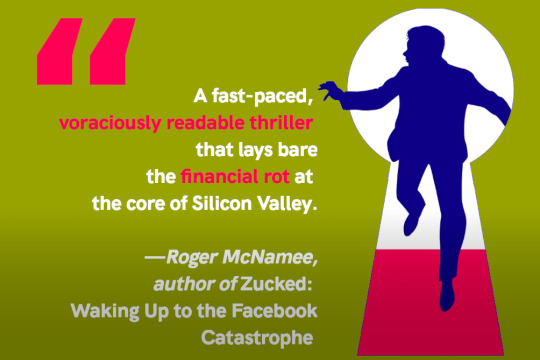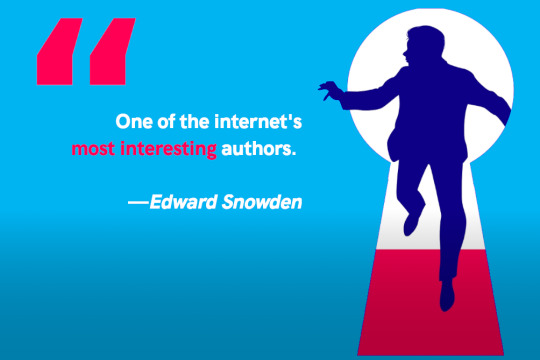#Forensic Accounting Market
Text
Insights into the Delhi Liquor Scam: A Strategia Advizo Accounting Perspective
Disclaimer: This analysis is a hypothetical simulation based on publicly available information. It is for educational purposes only and should not be construed as legal advice or a definitive account of events. The opinions and conclusions drawn herein are those of the Strategia Advizo expert accounting team and do not reflect the views of any implicated parties or governmental…

View On WordPress
#Compliance and Governance#Delhi Liquor Scam#Excise Policy Analysis#Forensic Accounting#Market Dynamics#Policy Manipulation#Regulatory Oversight#Risk Management#Transparency in Licensing
0 notes
Text




Your Future Spouses Job
Due to derivative astrology the 4th house rules over our future spouses career. Here are some possible careers your spouse could have with each 4th house placement. Remember that there can be more interpretations than this, but these are only some examples

Aries 4h: Firefighter, athlete, rapper, race car driver, fighter (example: ufc fighter), cop, military soldier/veteran, er dispatcher, personal trainer/bodybuilder, entrepreneur
Taurus 4h: Chef, accountant, banker, singer, podcaster, sales worker, radio host, fashion designer/stylist, model, botanist, financial manager, financial clerk, food service manager, marketing manager, cashier
Gemini 4h: Writer/journalist/poet, social media influencer, teacher, comedian, podcaster, politician, radio host, public speaker, librarian, videographer, counselor, game designer, tutor, neurologist, driver (examples: door dasher, bus driver, uber driver, etc)
Cancer 4h: Baker, real estate agent, nurse, nanny (example: travel nanny), home/interior designer/architect, marine biologist, carpenter, construction worker, counselor, professional cuddler
Leo 4h: Actor, entertainer, athlete, talent agent/director, event/party planner, theatre teacher, music teacher, hair stylist/barber, concert promoter, any career involving fame
Virgo 4h: Doctor/nurse, nutritionist, vet, comedian, news reporter, interviewer, personal trainer, therapist, lawyer, farmer, librarian, botanist, housekeeper/maid, counselor, tutor, dentist, dermatologist, neurologist, zoologist, social media influencer
Libra 4h: Singer, dancer, model, artist, fashion designer/stylist, wedding planner, makeup artist, lawyer, dermatologist, barber/hair stylist
Scorpio 4h: Detective, cop, psychologist, funeral director, coroner, banker, sex worker (example: stripper), tax preparer, bikini waxer, forensic pathologist, criminal psychologist
Sagittarius 4h: Teacher, comedian, pilot, flight attendant, astrologer, news reporter, casting agent, religious career (example: pastor), lawyer, librarian, philosopher, photographer, interpreter/translator, tutor, tour guide
Capricorn 4h: Business owner/ceo, film director, publicist, archeologist, politician, entrepreneur, historian, financial manager, carpenter, construction worker, chiropractor, dentist, sales agent
Aquarius 4h: Engineer, scientist, rapper, social media influencer, film producer, inventor, dj, humanitarian, politician, graphic designer, entrepreneur, videographer, game designer, electrician
Pisces 4h: Singer/musician, actor, astrologer, psychic, hypnotist, astronomer, artist, model, lifeguard, marine biologist, creative writer, lyricist, any career involving fame


#future spouse astrology#predictive astrology#4th house#derivative astrology#birth chart#astrology#astrology blog#astrology community#astro community#astrology chart#astrology tutorial
2K notes
·
View notes
Text
Introduction to International Financial Reporting Standards
If you are keen to make a career in the world of finance, you must be aware of international financial reporting standards. You can grasp a better understanding of introduction to International Financial Reporting Standards through various financial management related books penned by Professor Kelly Kingsly. His books share his valuable thoughts and experiences that he gained while working in key financial positions in various government and private organizations.
#Forensic Accounting in Market Expansion#Introduction to International Financial Reporting Standards#the International Accounting Standards#International Accounting Standards Ifrs#kelly kingsly#professor kelly
0 notes
Link
0 notes
Photo

“Toronto Stock Broker Captured After Chase On a Charge of Theft,” Kingston Whig-Standard. April 1, 1932. Page 1.
---
TORONTO, April 1— Charged with theft on a warrant issued by the Ontario Attorney-General's department, John MacDonald, Toronto stock broker, was arrested here yesterday. He was captured after James McBride, accountant in the security fraud's branch of the department, had seen him downtown and given chase. The theft charge was laid by A. J. Thorne, of Toronto, who says he gave MacDonald $116 to invest in mining stock, purchase of which he alleges was never made.
#toronto#attorney general of ontario#theft of funds#stock broker#financial fraud#forensic accountant#police chase#defrauding investors#stock market scam#stock market#stolen mining stock#great depression in canada#crime and punishment in canada#history of crime and punishment in canada
0 notes
Text
Kickstarting the Red Team Blues audiobook, which Amazon won't sell (read by Wil Wheaton!)

Red Team Blues is my next novel, a post-cyberpunk anti-finance finance thriller; it’s a major title for my publishers Tor Books and Head of Zeus, and it’s swept the trade press with starred reviews all ‘round. Despite all that, Audible will not sell the audiobook. In fact, Audible won’t sell any of my audiobooks. Instead, I have to independently produce them and sell them through Kickstarter:
https://www.kickstarter.com/projects/doctorow/red-team-blues-another-audiobook-that-amazon-wont-sell
If you’d like an essay-formatted version of this post to read or share, here’s a link to it on pluralistic.net, my surveillance-free, ad-free, tracker-free blog:
https://pluralistic.net/2023/03/21/anti-finance-finance-thriller/#marty-hench
Audible is Amazon’s monopoly audiobook platform. It has a death-grip on the audiobook market, commanding more than 90% of genre audiobook sales, and every single one of those audiobooks is sold with Amazon’s DRM on it. That means that you can’t break up with Amazon without throwing away those audiobooks. Under the 1998 Digital Millennium Copyright Act, I can’t give you a tool to convert my own copyrighted audiobooks to a non-Amazon format. Doing so is a felony carrying a five year prison sentence and a $500,000 fine for an act that in no way infringes anyone’s copyright! Indeed, merely infringing copyright is much less illegal than removing Amazon’s mandatory DRM from my own books!

I’ve got amazing publishers who support my crusade against DRM, but they’re not charities. If they can’t sell my audiobooks on the platform that represents 90% of the market, they’re not going to make audio editions at all. Instead, I make my own audiobooks, using brilliant voice actors like Amber Benson and @neil-gaiman, and I sell them everywhere except Audible.
Doing this isn’t cheap: I’m paying for an incredible studio (Skyboat Media), a world-class director (Gabrielle de Cuir), top-notch sound editing and mastering, and, of course, killer narrators. And while indie audiobook platforms like Libro.fm and downpour.com are amazing, the brutal fees extracted by Apple and Google on app sales means that users have to jump through a thousand hoops to shop with indie stores. Most audiobook listeners don’t even know that these stores exist: if a title isn’t available on Audible, they assume no audiobook exists.

That’s where Kickstarter comes in: twice now, I’ve crowdfunded presales of my audiobooks through KS, and these campaigns were astoundingly successful, smashing records and selling thousands of audiobooks. These campaigns didn’t just pay my bills (especially during lockdown, when our household income plunged), but they also showed other authors that it was possible to evade Amazon’s monopoly chokepoint and sell books that aren’t sticky-traps for Audible’s walled garden/prison:
https://www.publishersweekly.com/pw/by-topic/columns-and-blogs/cory-doctorow/article/90282-we-wrote-a-book-about-why-audible-won-t-sell-our-book-and-snuck-it-onto-audible.html
And today, I’m launching the Kickstarter for Red Team Blues, and even by the standards of my previous efforts, I think this one’s gonna be incredible.
https://www.kickstarter.com/projects/doctorow/red-team-blues-another-audiobook-that-amazon-wont-sell
For starters, there’s the narrator: @wilwheaton, whose work on my previous books is outstanding, hands-down my favorite (don’t tell my other narrators! They’re great too!):
https://wilwheaton.net/
Beyond Wil’s narration, there’s the subject matter. The hero of Red Team Blues is a hard-charging forensic accountant who’s untangled every Silicon Valley finance scam since he fell in love with spreadsheets as as a MIT freshman, dropped out, got his CPA ticket, and moved west. Now, at the age of 67, Marty Hench is ready to retire, but a dear old friend — a legendary cryptographer — drags him back for one last job — locating the stolen keys to the backdoor he foolishly hid in a cryptocurrency that’s worth more than a billion dollars.

That’s the starting gun for a “grabby next-Tuesday thriller” that sees Marty in between three-letter agencies and international crime syndicates, all of whom view digital technology as a carrier medium for scams, violence and predation. Marty’s final adventure involves dodgy banks, crooked crypto, and complicit officials in a fallen paradise where computers’ libertory promise has been sucked dry by billionaire vampires.
It’s a pretty contemporary story, in other words.
I wrote this one before SVB, before Sam Bankman0Fried and FTX — just like I wrote Little Brother before Snowden’s revelations. It’s not that I’m prescient — fortune-telling is a fatalist’s delusion — it’s that these phenomena are just the most spectacular, most recent examples in a long string of ghastly and increasingly dire scandals.
Red Team Blues blasted out of my fingertips in six weeks flat, during lockdown, when technology was simultaneously a lifeline, connecting us to one another during our enforced isolation; and a tool of predatory control, as bossware turned our “work from home” into “live at work.”
The last time I wrote a book that quickly, it was Little Brother, and, as with Little Brother, Red Team Blues is a way of working out my own anxieties and hopes for technology on the page, in story.

These books tap into a nerve. I knew I had something special in my hands when, the night after I finished the first draft, I rolled over at 2AM to find my wife sitting up in bed, reading.
“What are you doing?” I asked.
“I had to find out how it ended,” she answered.
The next day, my editor sent me a four-line email:
That.
Was.
A! Fucking! Ride!
Whoa!
Within a week, he’d bought Red Team Blues…and two sequels. I finished writing the second of these on Monday, and all three are coming out in the next 22 months. It’s gonna be a wild ride.

Kickstarter backers can get the usual goodies: DRM-free audiobooks and ebooks, hardcovers (including signed and personalized copies), and three very special, very limited-run goodies.
First, there’s naming rights for characters in the sequels — I’m selling three of these; they’re a form of cheap (or at least, reasonably priced) literary immortality for you or a loved one. The sequels are a lot of fun — they go in reverse chronology, and the next one is The Bezzle, out in Feb 2024, a book about prison-tech scams, crooked LA County Sheriff’s Deputy gangs, and real-estate scumbags turned techbros.

The third book is Picks and Shovels (Jan 2025), and it’s Marty’s first adventure after he comes west to San Francisco and ends up working for the bad guys, an affinity scam PC company called “Three Wise Men” that’s run by a Mormon bishop, a Catholic priest and an orthodox rabbi who fleece their faithful with proprietary, underpowered computers and peripherals, and front for some very bad, very violent money-men.
Next, there’s three Marty Hench short story commissions: the Hench stories are machines for turning opaque finance scams into technothrillers. While finance bros use MEGO (“my eyes glaze over”) as a weapon to bore their marks into submission, I use the same performative complexity as the engines of taut detective stories. Commissioning a Hench story lets you turn your favorite MEGO scam into a science fiction story, which I’ll then shop to fiction websites (every story I’ve written for the past 20 years has sold, though in the event that one of these doesn’t, I’ll put it up under a CC license).

Finally, there’s a super-ultra-limited deluxe hardcover edition — and I do mean limited, just four copies! These leather-bound editions have Will Staehle’s fantastic graphic motif embossed in their covers, and the type design legend John D Berry is laying out the pages so that there’s space for a hidden cavity. Nestled in that cavity is a hand-bound early draft edition of The Bezzle, the sequel to Red Team Blues. The binding is being done by the fantastic book-artist John DeMerritt. Each copy’s endpapers will feature a custom cryptographic puzzle created especially for it by the cryptographer Bruce Schneier.
I often hear from readers who want to thank me for the work I do, from the free podcast I’ve put out since 2006 to the free, CC BY columns I’ve written for Pluralistic for the past three years. There is no better way to thank me than to back this Kickstarter and encourage your friends to do the same:
https://www.kickstarter.com/projects/doctorow/red-team-blues-another-audiobook-that-amazon-wont-sell
Preselling a ton of audiobooks, ebooks, and print books is a huge boost to the book on its launch — incomparable, really. Invaluable.

What’s more, helping me find a viable way to produce popular, widely heard audiobooks without submitting to Amazon’s DRM lock-in sets an example for other creators and publishers: we have a hell of a collective action problem to solve, but if we could coordinate a response to Audible demanding the right to decide whether our work should have their DRM, it would force Audible to treat all of us — creators, publishers and listeners — more fairly.
I’ll be heading out on tour to the US, Canada, the UK and Germany once the book is out. I’m really looking forward to as many backers in person as I can! Thank you for your support over these many long years — and for your support on this Kickstarter.

Today (Mar 22), I’m doing a remote talk for the Institute for the Future’s “Changing the Register” series.
[Image ID: A graphic showing a phone playing the Red Team Blues audiobok, along with a quote from Booklist, 'Jam-packed with cutting-edge ideas about cybersecurity and crypto. Another winner from an sf wizard.']
#pluralistic#wil wheaton#drm#chokepoint capitalism#Monopoly#audible#amazon#audiobooks#sf#science fiction#post cyberpunk#cyberpunk#technothrillers#thrillers#heists#cryptocurrency#red team blues#marty hench#kickstarter
1K notes
·
View notes
Text
Watcher's Expenses
I didn't major in accounting: I took three classes and it grinded my brain to a fine powder. However, after graduating with a business admin degree, being a former eager fan of their videos, and from a cursory glance over their socials, there's a lot to consider in their spending behavior that really could start racking up costs. Some of these things we've already noticed, but there are other things I'd like to highlight, and I'll try to break it down into the different categories of accounting expenses (if I get something wrong, let me know. I was more concentrated in marketing 🤷♀️). I'm not going to hypothesize numbers either, as that would take out more time than I'm willing to afford-- you can assume how much everything costs. Anyways, here's my attempt at being a layman forensic accountant:
Note: All of this is assuming they're operating above board and not engaging in any illegal practices such as money laundering, tax evasion, not paying rent, etc.
Operating Expenses
Payroll: 25+ staff salaries and insurance
Overhead Expenses
CEO/founder salaries
Office space leasing or rent (In L.A, one of the most expensive cities in the US)
Utilities (water, electricity, heating, sanitation, etc.)
Insurance
Advertising Costs
Telephone & Internet service
Cloud Storage or mainframe
Office equipment (furniture, computers, printers, etc.)
Office supplies (paper, pens, printer ink, etc.)
Marketing costs (Social media marketing on Instagram, Youtube, SEO for search engines, Twitter, etc. Designing merchandise and posters, art, etc. )
Human Resources (not sure how equipped they are)
Accounting fees
Property taxes
Legal fees
Licensing fees
Website maintenance (For Watchertv.com, Watcherstuff.com, & Watcherentertainment.com)
Expenses regarding merchandising (whoever they contract or outsource for that)
Inventory costs
Potentially maintenance of company vehicles
Subsequent gas mileage for road trips
Depreciation (pertains to tangible assets like buildings and equipment)
Amortization (intangible assets such as patents and trademarks)
Overhead Travel and Entertainment Costs (I think one of the biggest culprits, evident in their videos and posts)
The travel expenses (flights, train trips, rental cars, etc. For main team and scouts)
Hotel expenses for 7-8 people at least, or potentially more
Breakfasts, lunches and dinners with the crew (whether that's fully on their dime or not, I don't know; Ryan stated they like to cover that for the most part)
Recreational activities (vacation destinations, amusement parks, sporting activities etc.)
The location fees
Extraneous Overhead costs (not sure exactly where these fall under, but another culprit, evident in videos and posts)
Paying for guest appearances
Expensive filming & recording equipment (Cameras, sound equipment, editing software subscriptions, etc.)
The overelaborate sets for Ghost files, Mystery Files, Puppet History, Podcasts etc. (Set dressing: Vintage memorabilia, antiquated tech, vintage furniture, props, etc.)
Kitchen & Cooking supplies/equipment
Office food supply; expensive food and drink purchases for videos
Novelty items or miscellaneous purchases (ex. Ghost hunting equipment, outfits, toys, etc.)
Non-Operating Expenses
These are those expenses that cannot be linked back to operating revenue. One of the most common examples of non-operating expenses is interest expense. This is because while interest is the cost of borrowing money from a creditor or a bank, they are not generating any operating income. This makes interest payments a part of non-operating expenses.
Financial Expenses
Potential loan payments, borrowing from creditors or lenders, bank loans, etc.
Variable Expenses
Hiring a large amount of freelancers, overtime expenditure, commissions, etc.
PR consultations (Not sure if they had this before the scandal)
Extraordinary Expenses
Expenses incurred outside your company’s regular business activities and during a large one-time event or transactions. For example, selling land, disposal of a significant asset, laying off of your employees, unexpected machine repairing or replacement, etc.
Accrued Expenses
When your business has incurred an expense but not yet paid for it.
------------------------------------------------------------------------------------------------------------------------
(If there's anything else I'm missing, please feel free to add or correct things)
To a novice or a young entrepreneur, this can be very intimidating if you don't have the education or the support to manage it properly. I know it intimidates the hell out of me and I'm still having to fill in the gaps (again, if I've mislabeled or gotten anything wrong here, please let me know). For the artistic or creative entrepreneur, it can be even harder to reconcile the extent of your creative passions with your ability to operate and scale your business at a sustainable rate. That can lead to irresponsible, selfish, and impulsive decisions that could irreparably harm your brand, which is a whole other beast of its own.
My guess at this point is that their overhead and operation expenses are woefully mismanaged; they've made way too many extraneous purchases, and that they had too much confidence in their audience of formerly 2.93 million to make up for the expenses they failed to cover.
It almost seems as if their internal logic was, "If we make more money, we can keep living the expensive lifestyle that we want and make whatever we want without anyone telling us we can't, and we want to do it NOW, sooner rather than later because we don't want wait and compromise our vision." But as you can see, the reality of fulfilling those ambitions is already compromised by the responsibility of running a business.
And I wrote this in another post here, but I'll state it again: Running a business means you need to be educated on how a business can successfully and efficiently operate. Accounting, marketing, social media marketing, public relations, production, etc; these resources and internet of things is available and at your disposal. If they had invested more time in educating themselves on those aspects and not made this decision based on artistic passion (and/or greed), they would have not gotten the response they got.
Being a graphic designer, I know the creative/passionate side of things but I also got a degree/got educated in business because I wanted to understand how to start a company and run it successfully. If they’re having trouble handling the responsibility of doing that, managing production costs, managing overhead expenses, and especially with compensating their 25+ employees, then they should hire professionals that are sympathetic to their creative interests, but have the education and experience to reign in bad decisions like these.
Anyways, thanks for coming to my TedTalk. What a shitshow this has been.

#watcher#watcher entertainment#ryan bergara#shane madej#steven lim#watcher tv#watchergate#accounting
61 notes
·
View notes
Text
Modern AU: CEO! Finarfin
SFW and NSFW Headcanons

A/N: Back again with another Modern AU headcanon (you probably thought I gave it up). The last one I did was for the Sugar Daddies, I had a hard time deciding if I should have done one for Finarfin (maybe a next time)...here's CEO! Finarfin to continue this Modern AU.
Modern AU Masterlist



SFW
CEO! Finarfin who…inherited the smallest share of his father’s company after the will was read and turned out to have the most successful business ever. More successful than Feanor and easily surpassed him in the markets with a grand welcome of deals and shares. His company ran the most prolonged, longer than his father's rule.
CEO! Finarfin who…was pleased to hire you as his forensic accountant and was blown away by your credentials. There wasn’t an area on your resume that showed you being incapable of anything. This pushed him to have you as his certified forensic accountant, not wanting to have anyone else sort out all his financial reports. He needed someone with vast skills who could keep up with his business work etiquette, and you had them all.
CEO! Finarfin who…asks for you to do background research on all of the companies before he makes a deal or co-signs with them. He respects your words and looks forward to your guidance, believing in your final say about companies, their work ethics and financial history. He doesn’t have the need to consult another accountant to clarify if the data acquired is true or false.
CEO! Finarfin who…not only loves your advice in business but also in life. He looks forward to the motivational words you give him whenever he’s stressed out by his eldest brother or family problems. There are moments during meetings you would notice the stress and make a few comments here and there to relieve himself and have a break. Other times, when the meeting is over or midway, the conversation changes outside of work matters.
CEO! Finarfin who…also insists that you tag along to lunch because you do so much for him, way out of your job description, thus you deserve some time off to take away his stress (that is if you are living nearby and not overseas).
CEO! Finarfin who…can’t help but feel touched by the extra distance you’re willing to go and can’t help but wonder what your motives were. Were you trying to get closer to him because it wasn’t the first time someone attempted, plus, he was a single desirable bachelor? Many were lining up for his hand in marriage. Or were you genuinely sincere towards him? He hoped the latter, he did fancy you.
CEO! Finarfin who…takes the chance to ask you out for dinner one day out of the blue and almost walked into his office door after you told him yes. You saw the natural radiant beam of light shine out from him when realised he still had his game and charm.
NSFW
CEO! Finarfin who…takes the opportunity to bring you to his company whenever face-to-face meetings are being held. Sometimes, the chauffeur will retrieve you before him at Finarfin’s request just to have you sit and wait for his return after a morning jog. When he comes in, he’s wearing a simple thin tee and sweatpants that do not hide his physique. Thus, you are caught drooling at his body and he takes notice.
CEO! Finarfin who…loves to hold you close when kissing you so you could feel the outline of his physique through his shirt and shiver at the close contact. He runs his own hands up and down your body as the kiss escalates and lifts you onto his table to press his bulge into your core. The little gasp you would make just turns him into a little demon who walks you over to his sofa and allow you to grind over his crotch.
CEO! Finarfin who…would unbutton your shirt as you’re making out in his office and leave a litter of hickeys around your chest and neck and send you back to the accountant firm, with at least the top two buttons undone, hot and bothered. He knows that your underwear was soaked and was itching to have it off, but he’s a patient person.
CEO! Finarfin who…waits until you’ve both returned to his home, where he presses you against the walls to have his way. A passionate lover who has you speaking in tongues — he’s that good. King of aftercare and indulges in shower sex and morning sex. He tends to have more energy in the morning, so his pace is faster.
CEO! Finarfin who…doesn’t take the chance of fucking you in his office when you visit because he’s always busy and anyone could walk in, so he prefers his house. He does take back his word when he’s stressed out by his elder brother’s competitive behaviour, and you’re around to save the day with a blowjob under his desk and then riding him like no tomorrow. He lost his mind at your actions and didn’t hesitate to bend you over his desk, whispering in your ear about how good you were always for him.
CEO! Finarfin who…hates to use you as a stress reliever but loves how you feel around him when he’s stressed. His senses are heightened so he seeks you to dispel his tiredness with a nice rough fuck. Prefers when you call him affectionate names with the exception of ‘Sir’, it gets you bent over any surface. Hates and loves when you run your hand through his hair or tug him by his collar and call him Sir.
CEO! Finarfin who…invests in buying you pretty lingerie because he’s a sucker for them and loves the way you look. He’s torn between taking you in them and ripping them off your body, either way, you’re always getting a new stock. He acts like your sugar daddy even though you can more than afford the same things he purchases for you (he just wants to spoil you). Once you dropped the comment and he just raised a brow and smirked because he knew how true it was.
CEO! Finarfin who…fucks you a little rougher than usual whenever he meets with his family and complains the entire night about them as he’s fucking you — it’s the one time he’s very rough and doesn’t let you have any control. You’re literally his personal stress reliever.
CEO! Finarfin who…calls you ‘his baby’ and enjoys taking you to events, loving to see you decked out in the finest jewellery and clothes. His heart swells even more with the realisation that he’s more than just spoiling you and treating you like his sugar baby, he fancies you. Later on, asks for you to officially move in with him and make things official between you two.

Masterlist
Taglist: @spidergirla5 @lilmelily @eunoiaastralwings @noldorinpainter @ranhanabi777 @someoneinthestars @mysticmoomin @aconstructofamind @rain-on-my-umbrella @the-phantom-of-arda @singleteapot @wandererindreams @asianbutnotjapanese @ilu-stripes @justellie17 @justjane @silverose365 @bunson-burner
#silm smut#finarfin x reader#finarfin imagine#finarfin smut#finarfin scenario#finarfin headcanon#ceo!finarfin#modern au#silmarillion x reader#silmarillion imagine#silmarillion headcanon#silmarillion smut#middle earth headcanons#middle earth x reader#middle earth imagine#middle earth smut#house of finarfin#arafinwe#arafinwë#ingoldo#arafinweans#x reader insert#x reader smut#silmarillion#doodlepops writings ✨
82 notes
·
View notes
Text

LETTERS FROM AN AMERICAN
August 2, 2023
HEATHER COX RICHARDSON
AUG 3, 2023
There have been more developments today surrounding yesterday’s indictment of former president Trump for conspiring to defraud the United States, conspiring to disenfranchise voters, and conspiring and attempting to obstruct an official proceeding as he tried to overturn the results of the 2020 election and install himself in office over the wishes of the American people.
Observers today called out the part of the indictment that describes how Trump and Co-Conspirator 4, who appears to be Jeffrey Clark, the man Trump wanted to make attorney general, intended to use the military to quell any protests against Trump’s overturning of the election results. When warned that staying in power would lead to “riots in every major city in the United States,” Co-Conspirator 4 replied, “Well…that’s why there’s an Insurrection Act.”
The Insurrection Act of 1807 permits the president to use the military to enforce domestic laws, invoking martial law. Trump’s allies urged him to do just that to stay in power. Fears that Trump might do such a thing were strong enough that on January 3, 2021, all 10 living former defense secretaries signed a Washington Post op-ed warning that “[e]fforts to involve the U.S. armed forces in resolving election disputes would take us into dangerous, unlawful and unconstitutional territory.”
They put their colleagues on notice: “Civilian and military officials who direct or carry out such measures would be accountable, including potentially facing criminal penalties, for the grave consequences of their actions on our republic.” Josh Marshall at Talking Points Memo recalled today that military leaders told Congress they were reluctant to respond to the violence at the Capitol out of concern about how Trump might use the military under the Insurrection Act.
Political pollster Tom Bonier wrote: “I understand Trump fatigue, but it feels like the president and his advisors preparing to use the military to quash protests against his planned coup should be bigger news. Especially when that same guy is in the midst of a somewhat credible comeback effort.”
On The Beat tonight, Ari Melber connected Trump Co-Conspirator John Eastman to Senator Ted Cruz (R-TX). Just before midnight on January 6, 2021, after the attack on the U.S. Capitol, Eastman wrote to Pence’s lawyer to beg him to get Pence to adjourn Congress “for 10 days to allow the legislatures to finish their investigations, as well as to allow a full forensic audit of the massive amount of illegal activity that has occurred here.” On the floor of the Senate at about the same time, Cruz, who voted against certification, used very similar language when he called for “a ten-day emergency audit.”
An email sent by Co-Conspirator 6, the political consultant, matches one sent from Boris Epshteyn to Trump lawyer Rudy Giuliani, suggesting that Epshteyn is Co-Conspirator 6. The Russian-born Epshteyn has been with Trump’s political organization since 2016 and was involved in organizing the slates of false electors in 2020. Along with political consultant Steve Bannon, Epshteyn created a cryptocurrency called “$FJB, which officially stands for “Freedom. Jobs. Business.” but which they marketed to Trump loyalists as “F*ck Joe Biden.” By February 2023, Nikki McCann Ramirez reported in Rolling Stone that the currency had lost 95% of its value.
Since the indictment became public, Trump loyalists have insisted that the Department of Justice is attacking Trump’s First Amendment rights to free speech. Indeed, if Giuliani’s unhinged appearance on Newsmax last night is any indication, it appears that has been their strategy all along. Aside from the obvious limit that the First Amendment does not cover criminal behavior, the grand jury sidestepped this issue by acknowledging that Trump had a right to lie about his election loss. It indicted him for unlawfully trying to obstruct an official proceeding and to disenfranchise voters.
Today, Trump’s former attorney general William Barr dismissed the idea that the indictment is an attack on Trump’s First Amendment rights. Barr told CNN’s Kaitlan Collins: “As the indictment says, they're not attacking his First Amendment right. He can say whatever he wants. He can even lie. He can even tell people that the election was stolen when he knew better. But that does not protect you from entering into a conspiracy. All conspiracies involve speech. And all fraud involves speech. Free speech doesn't give you the right to engage in a fraudulent conspiracy.”
Rudy Giuliani has his own troubles in the news today, unrelated to the attempt to overturn the results of the 2020 election. His former assistant Noelle Dunphy is suing him for sexual harassment and abuse, and new transcripts filed in the New York Supreme Court of Giuliani’s own words reveal disturbing fantasies of sexual domination that are unlikely to help his reputation. (Historian Kevin Kruse retweeted part of the transcript with the words, “Goodbye, lunch.”)
The chaos in the country’s political leaders comes with a financial cost. According to Fitch Ratings Inc., a credit-rating agency, the national instability caused by “a steady deterioration in standards of governance over the last 20 years” has damaged confidence in the country’s fiscal management. Yesterday it downgraded the United States of America’s long-term credit rating for the second time in U.S. history.
Fitch cited “repeated debt-limit political standoffs and last-minute resolutions,” “a complex budgeting process,” and “several economic shocks as well as tax cuts and new spending initiatives” for its downgrade. The New York Times warned that the downgrade is “another sign that Wall Street is worried about political chaos, including brinkmanship over the debt limit that is becoming entrenched in Washington.”
The timing of the downgrade made little sense economically, as U.S. economic growth is strong enough that the Bank of America today walked back earlier warnings of a recession. Treasury Secretary Janet Yellen noted that the key factors on which Fitch based its downgrade had started in 2018 and called the downgrade “arbitrary.” The editorial board of the Washington Post called the timing “bizarre.” But the timing makes more sense in the context of the fact that House Republicans could not pass 11 of 12 necessary appropriations bills before leaving for their August recess.
The White House said it “strongly disagree[d]” with the decision to downgrade the U.S. credit rating, noting that the ratings model Fitch used declined under Trump before rebounding under Biden, and saying “it defies reality to downgrade the United States at a moment when President Biden has delivered the strongest recovery of any major economy in the world.” But it did agree that “extremism by Republican officials—from cheerleading default, to undermining governance and democracy, to seeking to extend deficit-busting tax giveaways for the wealthy and corporations—is a continued threat to our economy.”
LETTERS FROM AN AMERICAN
HEATHER COX RICHARDSON
#Trump indictment#political#Letters From An American#Heather Cox Richardson#conspiracy#Trump Indictment#co-conspirators
10 notes
·
View notes
Text
The Internet of orphaned things inside your body
*Via Cory Doctorow, who writes incredible amounts of this stuff.
Read today's issue online at: https://pluralistic.net/2022/12/12/unsafe-at-any-speed/
_,.-'~'-.,__,.-'~'-.,__,.-'~'-.,__,.-'~'-.,__,.-'~'-.,_
My publisher Tor Books and Goodreads are having a drawing for a giveaway of advance hardcopies of my next novel, "Red Team Blues," a Silicon Valley forensic accounting thriller about a cryptocurrency heist. If you're in the US or Canada, enter here to win a copy:
https://www.goodreads.com/giveaway/show/353941-red-team-blues
_,.-'~'-.,__,.-'~'-.,__,.-'~'-.,__,.-'~'-.,__,.-'~'-.,_
Today's links
* Orphaned neurological implants: When the company that powers your nervous system decides to 'pivot.'
* Hey look at this: Delights to delectate.
* This day in history: 2002, 2007, 2012, 2017
* Colophon: Recent publications, upcoming/recent appearances, current writing projects, current reading
_,.-'~'-.,__,.-'~'-.,__,.-'~'-.,__,.-'~'-.,__,.-'~'-.,_
🧑🏼💻 Orphaned neurological implants
The startup world's dirty not-so-secret is that most startups fail. Startups are risky ventures and their investors know it, so they cast a wide net, placing lots of bets on lots of startups and folding the ones that don't show promise, which sucks for the company employees, but also for the users who depend on the company's products.
You know what this is like: you sink a bunch of time into familiarizing yourself with a new product, you spend money on accessories for it, you lock your data into it, you integrate it into your life, and then, one morning - poof! All gone.
Now, there are ways that startups could mitigate this risk for their customers: they could publish their source code under a free/open license so that it could be maintained by third parties, they could refuse to patent their technology, or dedicate their patents to an open patent pool, etc.
All of this might tempt more people to try their product or service, because the customers for digital products are increasingly savvy, having learned hard lessons when the tools they previously depended were orphaned by startups whose investors pulled the plug.
But very few startups do this, because their investors won't let them. That brings me to the other dirty not-so-secret of the startup world: when a startup fails, investors try to make back some of their losses by selling the company's assets to any buyer, no matter how sleazy.
A startup's physical assets are typically minimal: used ergonomic chairs and laptops don't exactly hold their value, and there's not much of a market for t-shirts and stickers advertising dead businesses.
Wily investors are more interested in *intangible* assets: user data and patents, which are sold off to the highest bidder. That bidder is almost certainly a bottom-feeding scumbag, because the best way to maximize the value of user data is to abuse it, and the best way to maximize a failed business patent is to use it for patent trolling.
If you let your investors talk you into patenting your cool idea, there's a minuscule chance that the patent will be the core of a profitable business - and a *much* larger chance that it end up in a troll's portfolio. Real businesses make things that people want. Patent trolls are parasites, "businesses" whose only products are legal threats and lawsuits, which they use to bleed out real businesses.
The looming threat of dissolution gives rise to a third startup dirty secret: faced with a choice of growth or sustainability, companies choose growth. There's no point in investing in sustainability - good information security, robust systems, good HR - if it costs you the runway you need to achieve liftoff.
Your excellent processes won't help you when your investors shut you down, so a "lean" startup has only the minimum viable resiliency and robustness. If you do manage to attain liftoff - or get sold to a Big Tech firm - *then* you can fix all that stuff.
And if the far more likely outcome - failure - comes to pass, then all the liabilities you've created with your indifferent security and resiliency will be someone else's problem. Limited liability, baby!
Combine these three dirty secrets and it's hard to understand why anyone would use a startup's product, knowing that it will collect as much data as it can, secure it only indifferently, and sell that data on to sleazy data-brokers. Meanwhile, the product you buy and rely upon will probably become a radioactive wasteland of closed source and patent trolling, with so much technology and policy debt that no one can afford to take responsibility for it.
Think of Cloudpets, a viral toy sensation whose manufacturer, Spiral Toys, had a successful IPO - and then immediately started hemorrhaging money and shedding employees. Cloudpets were plush toys that you connected to your home wifi; they had built-in mics that kids could activate to record a voice-memo, which was transmitted to their parents' phones by means of an app, and parents could send messages back via the toys' speakers.
But Spiral Toys never bothered to secure those voice memos or the system for making new ones. The entire database of all recordings by kids and parents sat on an unencrypted, publicly accessible server for years. It was so indifferently monitored that no one noticed that hackers had downloaded the database multiple times, leaving behind threats to dump it unless they were paid ransoms.
By the time this came to light, Spiral Toys' share price was down more than 99% and no one was answering any of its email addresses or phones. The data - 2.2 *million* intimate, personal communications between small children and their parents - just hung out there, free for the taking:
https://www.troyhunt.com/data-from-connected-cloudpets-teddy-bears-leaked-and-ransomed-exposing-kids-voice-messages/
Data leakage is irreversible. Those 2,200,000 voice memos are now immortal, child-ghosts that will haunt the internet forever - after the parents are dead, after the kids are dead.
Data breaches are permanent. Filling a startup's sandcastle with your important data is a high-risk bet that the company will attain liftoff before it breaches.
It's not just your data that goes away when a startup folds - it's also the money you invest in its hardware and systems, as well as the cost of replacing devices that get bricked when a company goes bust. That's bad enough when it's a home security device:
https://gizmodo.com/spectrum-kills-home-security-business-refuses-refunds-1840931761
But what about when the device is *inside your body*?
Earlier this year, many people with Argus optical implants - which allow blind people to see - lost their vision when the manufacturer, Second Sight, went bust:
https://spectrum.ieee.org/bionic-eye-obsolete
Nano Precision Medical, the company's new owners, aren't interested in maintaining the implants, so that's the end of the road for everyone with one of Argus's "bionic" eyes. The $150,000 per eye that those people paid is gone, and they have failing hardware permanently wired into their nervous systems.
Having a bricked eye implant doesn't just rob you of your sight - many Argus users experience crippling vertigo and other side effects of nonfunctional implants. The company has promised to "do our best to provide virtual support" to people whose Argus implants fail - but no more parts and no more patches.
Second Sight wasn't the first neural implant vendor to abandon its customers, nor was it the last. Last week, Liam Drew told the stories of other neural abandonware in "Abandoned: the human cost of neurotechnology failure" in *Nature*:
https://www.nature.com/immersive/d41586-022-03810-5/index.html
Among that abandonware: ATI's neural implant for reducing cluster headaches, Nuvectra's spinal-cord stimulator for chronic pain, Freehand's paralysis bypass for hands and arms, and others. People with these implants are left in a precarious limbo, reliant on reverse-engineering and a dwindling supply of parts for maintenance.
Drew asked his expert subjects what is to be done about this. The least plausible answer is to let the market work its magic: "long-term support on the commercial side would be a competitive advantage." In other words, wait for companies to realize that promising a durable product will attract customers, so that the other companies go out of business.
A better answer: standardization. "If components were common across devices, one manufacturer might be able to step in and offer spares when another goes under." 86% of surgeons who implant neurostimulators back this approach.
But the best answer comes from Hunter Peckham, co-developer of Freehand and a Case Western biomedical engineer: open hardware. "Peckham plans to make the design specifications and supporting documentation of new implantable technologies developed by his team freely available. 'Then people can just cut and paste.'"
This isn't just the best answer, it's the only one. There's no ethical case for permanently attaching computers to people's nervous systems without giving them the absolute, irrevocable right to nominate who maintains those computers and how.
This is the case that Christian Dameff, Jeff Tully and I made at our Defcon panel this year: "Why Patients Should Hack Medtech." Patients know things about their care and their needs that no one else can ever fully appreciate; they are the best people to have the final say over med-tech decisions:
https://www.youtube.com/watch?v=_i1BF5YGS0w
This is the principle that animates Colorado's HB22-1031, the "Consumer Right To Repair Powered Wheelchairs Act," landmark Right to Repair legislation that was signed into law last year:
https://www.eff.org/deeplinks/2022/06/when-drm-comes-your-wheelchair
Opponents of this proposal will say that it will discourage investment in "innovation" in neurological implants. They may well be right: the kinds of private investors who hedge their bets on high-risk ventures by minimizing security and resilience and exploiting patents and user-data might well be scared off of investment by a requirement to make the technology open.
It may be that showboating billionaire dilettantes will be unwilling to continue to pour money into neural implant companies if they are required to put the lives of the people who use their products ahead of their own profits.
It may be that the only humane, sustainable way to develop neural implants is to publicly fund that research and development, with the condition that the work products be standard, open, and replicable.
Image:
Cryteria (modified)
https://commons.wikimedia.org/wiki/File:HAL9000.svg
CC BY 3.0
https://creativecommons.org/licenses/by/3.0/deed.en
37 notes
·
View notes
Text

In June 1977, 45 years ago this year, Elvis embarked on what would be his final tour, comprising ten shows, over consecutive nights, in ten cities over seven states, with total ticket sales of just under 117 000.
It was an eventful few days on the road, as recounted in Peter Guralnick's forensically researched bio, Careless Love: The Unmaking of Elvis Presley;
“…Ronnie Tutt left after the Des Moines concert, citing a family crisis, and Larrie Londin was able to come in for the last two nights after Sweet Inspirations drummer Jerome “Stump” Monroe filled in for one show. In Madison, Wisconsin, Elvis was being driven from the airport to the hotel when he spotted two youths ganging up on an attendant at an all-night filling station. Over the protests of Ginger and his father, he leapt out of the limousine and struck a karate pose, offering to take the two bullies on. The fight broke up without any further blows being exchanged as the three participants stood in stunned recognition of who was intervening. “Presley did not leave until tempers were cool,” reported one wire-service account…Presley shook hands and posed for several pictures. He seemed amused by the whole episode as he got back into the limousine…In Cincinnati he gave everyone another surprise when he grew irritated at the inadequacy of the hotel air-conditioning system and, deciding to take matters into his own hands, set out to find another hotel, heading down the street in his DEA jogging suit with his security detail behind. He was an hour late to the show that night because of what he termed “a technical hitch,” but his performance was generally accounted to be a good one…”
Early in the tour, in Omaha and Rapid City, shows were filmed for a television special, the final edit not ideal due to arena sound problems and Elvis' own struggles which have been well documented. For marketing purposes, it was claimed that these performances were Elvis' last actual concert. This was not true, and in fact Elvis' performance improved consistently over subsequent days, and his real final show, on June 26th in Indianapolis, was a great performance to a big, enthusiastic audience.
Over June, I'll be posting some clips, background and audience recordings celebrating Elvis' final days on the road, and despite what has been written then and since, on a good night, he was still a powerful showman who could fill big arenas, and whose voice was actually better than ever.
Feel free to contribute, comment, or discuss. Welcome and a big thank you to our new followers!
#elvis fans#elvis presley#elvis history#rock history#1970s rock#musicians#elvis 1970s#live music#elvis in the 70s#elvis#elvis 1977
68 notes
·
View notes
Text
#Public Finance Expert#Professor Kelly#Forensic Accounting in Market Expansion#books for forensic accountants#kelly kingsly
0 notes
Text
In the 1970s and 80s there was a chain of electronics stores in the New York media market that became quite famous for its over-the-top commercials. They hadn't invented that style of ad (which, as far as I can tell, rose and fell with the independent or small chain retail market), consisting of a very excited "insane" guy with a catchphrase about prices (His Prices Are INSAAAAANE!), but they flooded the Tri-State area airwaves with it.
I'm not really talking about this company because of their advertising, except in the sense that I am familiar with this company because my father told me the story of the ads once, while mentioning that he got some suspiciously cheap but good electronics there. You see, Crazy Eddie, named after primary ringleader Eddie Antar, was also a criminal enterprise and a fraud. According to one of the participants, Sam E. "Sammy" Antar, whose detailed and presumably highly misleading account of the case is available on his amazingly-named website White Collar Fraud, it had always been engaging in fraudulent accounting.
From its humble beginnings as a private company, profits were skimmed and employees were paid under the table, allowing the Antar family to, ah, manage their tax obligations. My understanding is that neither of these practices is or was particularly uncommon in the world of brick-and-mortar retail.
Now, as Crazy Eddie expanded, it became less and less reasonable to engage in petty fraud at that scale. What they had to do next was stop committing tax fraud. Not only would that allow them to avoid getting caught doing tax fraud, by progressively skimming less of the profit they would be able to appear to achieve an impressive rate of growth. This was all in preparation for the smart bit of the scheme, going public.
This is how it works. Stocks trade speculatively at a significant multiple of earnings. This means that if you control and own most of a company, if you can dump your own money into your company and then sell a significant amount of your stock, you can still easily come out well ahead. Soon, the Antars were painstakingly laundering money they had sucked out of Crazy Eddie while it was privately held back into the company past the not particularly vigilant auditors in order to look good to the financial markets.
Eventually the scheme started falling apart socially and financially, and the company suffered a hostile takeover from a competitor who subsequently found that there was $40 million less inventory than advertised. Caveat Emptor, I guess. Eddie Antar tried to flee to Israel but was extradited, upon later getting out of prison he tried to start another electronics retailer called Crazy Eddie, which surprisingly didn't work. Sammy Antar turned state's evidence and is now a fed-lite.
Why am I saying all this, why am I pointing out this particular case? Well, obviously it's because I think there are a lot of modern-day Antars running around making a lot of money, and presumably a lot of their CFOs are also going to flip and reinvent themselves as forensic auditors once they get caught. I assume most startups are somewhat more legal than anything Crazy Eddie did, but many of the market principles remain the same. In fact, corporate lawyers have developed more and more ways to do the same things the Antars did legitimately.
It is ironic that stealing from their own company was worthwhile for the Antars so long as the company was a serious business for them, albeit one that they were operating in a criminal manner, while pumping money into their company was only the correct thing to do once they were divesting themselves of ownership. Obviously this is just how tax evasion and pump and dumps work, but I find it contrasts interestingly with the capitalist dogma that ownership makes for better stewards of the property, still used as the primary political argument for privatization even though capitalist firms are also run managerially.
Ultimately, my takeaway is that the Antars were basically your regular shady retail guys, until they spotted an opportunity to get in on the ground floor of Shareholder Value Maximization. My other takeaway is if you get something cheap because someone is fucking the shareholders, mind your own business probably.
6 notes
·
View notes
Text
So the "make Jason fans sad with a story about financial paperwork" story was actually an outgrowth of my original, funnier idea about Bruce getting tired of performing elaborate feats of anti-forensic accounting to hide his Batman money and deciding he was going to kill two birds with one stone by openly funding Batman as Bruce Wayne and making Batman a company he can "invest" in* that never makes any money and is solely there to create capital losses to offset his capital gains come tax time, you know, like the one percent does. And it was going to be a delightful opportunity for me to hold forth on charitable contributions vs taxation and the morality of billionaire tax avoidance and the way people with inherited wealth approach finances, and potentially entertaining for Only Me. But I was like "ohhhh I can make the paperwork Sad, though", and so the Jason Todd trust fund fic was born. I might plunk away at the "give Batman an EIN number" fic, though. The title would be "Batman, Inc., Or Batman, LLC?"
*batman cannot be a charitable organization because charities have to release financial statements of how they're using the money they gain and funding illegal activities gets you shut down quickly. batman as a company, however, can simply exist to create experimental technology that ultimately fails testing and never comes to market, and as long as they keep soliciting investors and pay *their* taxes (they won't make profit, so, minimal at best) this quasi-legal state is Fine, Actually. mark cuban's pharmacy isn't currently making money, after all, according to an interview I watched, it sort of runs like this!
#batfam#mostly I want to give Tim Drake an eight month migraine trying to work this out potentially with Luke Fox
10 notes
·
View notes
Text
Insurance companies are making climate risk worse

Tomorrow (November 29), I'm at NYC's Strand Books with my novel The Lost Cause, a solarpunk tale of hope and danger that Rebecca Solnit called "completely delightful."

Conservatives may deride the "reality-based community" as a drag on progress and commercial expansion, but even the most noxious pump-and-dump capitalism is supposed to remain tethered to reality by two unbreakable fetters: auditing and insurance:
https://en.wikipedia.org/wiki/Reality-based_community
No matter how much you value profit over ethics or human thriving, you still need honest books – even if you never show those books to the taxman or the marks. Even an outright scammer needs to know what's coming in and what's going out so they don't get caught in a liquidity trap (that is, "broke"), or overleveraged ("broke," again) exposed to market changes (you guessed it: "broke").
Unfortunately for capitalism, auditing is on its deathbed. The market is sewn up by the wildly corrupt and conflicted Big Four accounting firms that are the very definition of too big to fail/too big to jail. They keep cooking books on behalf of management to the detriment of investors. These double-entry fabrications conceal rot in giant, structurally important firms until they implode spectacularly and suddenly, leaving workers, suppliers, customers and investors in a state of utter higgeldy-piggeldy:
https://pluralistic.net/2022/11/29/great-andersens-ghost/#mene-mene-bezzle
In helping corporations defraud institutional investors, auditors are facilitating mass scale millionaire-on-billionaire violence, and while that may seem like the kind of fight where you're happy to see either party lose, there are inevitably a lot of noncombatants in the blast radius. Since the Enron collapse, the entire accounting sector has turned to quicksand, which is a big deal, given that it's what industrial capitalism's foundations are anchored to. There's a reason my last novel was a thriller about forensic accounting and Big Tech:
https://us.macmillan.com/books/9781250865847/red-team-blues
But accounting isn't the only bedrock that's been reduced to slurry here in capitalism's end-times. The insurance sector is meant to be an unshakably rational enterprise, imposing discipline on the rest of the economy. Sure, your company can do something stupid and reckless, but the insurance bill will be stonking, sufficient to consume the expected additional profits.
But the crash of 2008 made it clear that the largest insurance companies in the world were capable of the same wishful thinking, motivated reasoning, and short-termism that they were supposed to prevent in every other business. Without AIG – one of the largest insurers in the world – there would have been no Great Financial Crisis. The company knowingly underwrote hundreds of billions of dollars in junk bonds dressed up as AAA debt, and required a $180b bailout.
Still, many of us have nursed an ember of hope that the insurance sector would spur Big Finance and its pocket governments into taking the climate emergency seriously. When rising seas and wildfires and zoonotic plagues and famines and rolling refugee crises make cities, businesses, and homes uninsurable risks, then insurers will stop writing policies and the doom will become undeniable. Money talks, bullshit walks.
But while insurers have begun to withdraw from the most climate-endangered places (or crank up premiums), the net effect is to decrease climate resilience and increase risk, creating a "climate risk doom loop" that Advait Arun lays out brilliantly for Phenomenal World:
https://www.phenomenalworld.org/analysis/the-doom-loop/
Part of the problem is political: as people move into high-risk areas (flood-prone coastal cities, fire-threatened urban-wildlife interfaces), politicians are pulling out all the stops to keep insurers from disinvesting in these high-risk zones. They're loosening insurance regs, subsidizing policies, and imposing "disaster risk fees" on everyone in the region.
But the insurance companies themselves are simply not responding aggressively enough to the rising risk. Climate risk is correlated, after all: when everyone in a region is at flood risk, then everyone will be making a claim on the insurance company when the waters come. The insurance trick of spreading risk only works if the risks to everyone in that spread aren't correlated.
Perversely, insurance companies are heavily invested in fossil fuel companies, these being reliable money-spinners where an insurer can park and grow your premiums, on the assumption that most of the people in the risk pool won't file claims at the same time. But those same fossil-fuel assets produce the very correlated risk that could bring down the whole system.
The system is in trouble. US claims from "natural disasters" are topping $100b/year – up from $4.6b in 2000. Home insurance premiums are up (21%!), but it's not enough, especially in drowning Florida and Texas (which is also both roasting and freezing):
https://grist.org/economics/as-climate-risks-mount-the-insurance-safety-net-is-collapsing/
Insurers who put premiums up to cover this new risk run into a paradox: the higher premiums get, the more risk-tolerant customers get. When flood insurance is cheap, lots of homeowners will stump up for it and create a big, uncorrelated risk-pool. When premiums skyrocket, the only people who buy flood policies are homeowners who are dead certain their house is gonna get flooded out and soon. Now you have a risk pool consisting solely of highly correlated, high risk homes. The technical term for this in the insurance trade is: "bad."
But it gets worse: people who decide not to buy policies as prices go up may be doing their own "motivated reasoning" and "mispricing their risk." That is, they may decide, "If I can't afford to move, and I can't afford to sell my house because it's in a flood-zone, and I can't afford insurance, I guess that means I'm going to live here and be uninsured and hope for the best."
This is also bad. The amount of uninsured losses from US climate disaster "dwarfs" insured losses:
https://www.reuters.com/business/environment/hurricanes-floods-bring-120-billion-insurance-losses-2022-2023-01-09/
Here's the doom-loop in a nutshell:
As carbon emissions continue to accumulate, more people are put at risk of climate disaster, while the damages from those disasters intensifies. Vulnerability will drive disinvestment, which in turn exacerbates vulnerability.
Also: the browner and poorer you are, the worse you have it: you are impacted "first and worst":
https://www.climaterealityproject.org/frontline-fenceline-communities
As Arun writes, "Tinkering with insurance markets will not solve their real issues—we must patch the gaping holes in the financial system itself." We have to end the loop that sees the poorest places least insured, and the loss of insurance leading to abandonment by people with money and agency, which zeroes out the budget for climate remediation and resiliency where it is most needed.
The insurance sector is part of the finance industry, and it is disinvesting in climate-endagered places and instead doubling down on its bets on fossil fuels. We can't rely on the insurance sector to discipline other industries by generating "price signals" about the true underlying climate risk. And insurance doesn't just invest in fossil fuels – they're also a major buyer of municipal and state bonds, which means they're part of the "bond vigilante" investors whose decisions constrain the ability of cities to raise and spend money for climate remediation.
When American cities, territories and regions can't float bonds, they historically get taken over and handed to an unelected "control board" who represents distant creditors, not citizens. This is especially true when the people who live in those places are Black or brown – think Puerto Rico or Detroit or Flint. These control board administrators make creditors whole by tearing the people apart.
This is the real doom loop: insurers pull out of poor places threatened by climate disasters. They invest in the fossil fuels that worsen those disasters. They join with bond vigilantes to force disinvestment from infrastructure maintenance and resiliency in those places. Then, the next climate disaster creates more uninsured losses. Lather, rinse, repeat.
Finance and insurance are betting heavily on climate risk modeling – not to avert this crisis, but to ensure that their finances remain intact though it. What's more, it won't work. As climate effects get bigger, they get less predictable – and harder to avoid. The point of insurance is spreading risk, not reducing it. We shouldn't and can't rely on insurance creating price-signals to reduce our climate risk.
But the climate doom-loop can be put in reverse – not by market spending, but by public spending. As Arun writes, we need to create "a global investment architecture that is safe for spending":
https://tanjasail.wordpress.com/2023/10/06/a-world-safe-for-spending/
Public investment in emissions reduction and resiliency can offset climate risk, by reducing future global warming and by making places better prepared to endure the weather and other events that are locked in by past emissions. A just transition will "loosen liquidity constraints on investment in communities made vulnerable by the financial system."
Austerity is a bad investment strategy. Failure to maintain and improve infrastructure doesn't just shift costs into the future, it increases those costs far in excess of any rational discount based on the time value of money. Public institutions should discipline markets, not the other way around. Don't give Wall Street a veto over our climate spending. A National Investment Authority could subordinate markets to human thriving:
https://democracyjournal.org/arguments/industrial-policy-requires-public-not-just-private-equity/
Insurance need not be pitted against human survival. Saving the cities and regions whose bonds are held by insurance companies is good for those companies: "Breaking the climate risk doom loop is the best disaster insurance policy money can buy."
I found Arun's work to be especially bracing because of the book I'm touring now, The Lost Cause, a solarpunk novel set in a world in which vast public investment is being made to address the climate emergency that is everywhere and all at once:
https://us.macmillan.com/books/9781250865939/the-lost-cause
There is something profoundly hopeful about the belief that we can do something about these foreseeable disasters – rather than remaining frozen in place until the disaster is upon us and it's too late. As Rebecca Solnit says, inhabiting this place in your imagination is "Completely delightful. Neither utopian nor dystopian, it portrays life in SoCal in a future woven from our successes (Green New Deal!), failures (climate chaos anyway), and unresolved conflicts (old MAGA dudes). I loved it."

If you'd like an essay-formatted version of this post to read or share, here's a link to it on pluralistic.net, my surveillance-free, ad-free, tracker-free blog:
https://pluralistic.net/2023/11/28/re-re-reinsurance/#useless-price-signals
#pluralistic#doom loop#insurance#insuretech#climate#climate risk#climate emergency#the lost cause#market forces#risk management#price signals#control boards#decarbonization#bond vigilantes#climate resilience
262 notes
·
View notes
Text
Unveiling the Versatility of Accounting Careers: Beyond Number Crunching
When people think of accounting careers, the image of number crunching, spreadsheets, and tax forms often comes to mind. However, the field of accounting offers much more than meets the eye. In this blog, we will explore the versatility of accounting careers, delving into the diverse range of opportunities that go beyond traditional roles. From strategic financial planning to forensic accounting and sustainability reporting, we will showcase the exciting and multifaceted paths available to accounting professionals. So, let's uncover the hidden gems and expand our understanding of the dynamic world of accounting.

Strategic Financial Planning and Analysis:
Accounting professionals play a crucial role in strategic financial planning and analysis. They collaborate with management teams to analyze financial data, identify trends, and provide insights for decision-making. By evaluating financial performance and market conditions, accountants contribute to formulating effective business strategies. This role requires strong analytical skills, business acumen, and the ability to communicate financial information to stakeholders effectively.
Forensic Accounting and Fraud Examination:
Forensic accounting combines accounting expertise with investigative skills to uncover financial irregularities and fraud. Forensic accountants work closely with law enforcement agencies, corporations, and legal teams to analyze financial records, trace assets, and provide expert testimony in legal proceedings. This exciting field demands meticulous attention to detail, critical thinking, and a deep understanding of financial transactions, making it an ideal choice for those with a passion for uncovering financial wrongdoing.
Sustainability Reporting and Environmental Accounting:
As sustainability becomes an integral part of business practices, the demand for accountants with expertise in sustainability reporting and environmental accounting is on the rise. These professionals help organizations measure, manage, and report their environmental impact. By analyzing data on energy consumption, carbon emissions, and waste management, accountants contribute to developing sustainable strategies and meeting regulatory requirements. This field offers the opportunity to make a positive impact on the environment while ensuring organizational transparency.

Financial Technology and Data Analytics:
The digital revolution has transformed the accounting landscape, giving rise to new career paths in financial technology (FinTech), technology management courses and data analytics. Accountants with technological skills and an understanding of data analysis tools are in high demand. They leverage automation, artificial intelligence, and data visualization to streamline financial processes, enhance decision-making, and provide valuable insights. This intersection of accounting and technology offers exciting prospects for innovation and continuous learning.
Consulting and Advisory Services:
Accountants also thrive in consulting and advisory roles, providing valuable financial advice to businesses and individuals. They assist clients in areas such as taxation, risk management, financial planning, and mergers and acquisitions. Consultants help organizations navigate complex financial challenges, optimize operations, and achieve their strategic objectives. This dynamic field requires strong interpersonal skills, industry knowledge, and the ability to provide customized solutions to clients' needs.

Accounting careers encompass far more than traditional number crunching. The field offers a diverse range of opportunities for professionals to explore their interests and expand their skills. Whether it's strategic financial planning, forensic accounting, sustainability reporting, FinTech, or consulting, accountants can leverage their expertise in various domains. As the accounting profession continues to evolve, embracing technology, sustainability, and strategic decision-making, the scope for innovation and growth within the field is immense. So, if you're considering a career in accounting, remember that the possibilities extend far beyond spreadsheets, offering a world of exciting and fulfilling opportunities.
2 notes
·
View notes